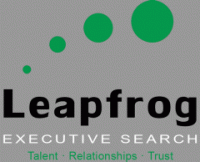Wait A Minute!
Category : 2021
Depending on which research, opinion, tweet, or meme you favor, a lot of life is invested in waiting. The acceleration provided by technology intensifies the frustration we feel during moments when we can do nothing but . . . wait.
During 2020, a large amount of wait time was invested in—
- Waiting for a download
- Waiting for meal delivery
- Waiting for someone to open a Zoom or Teams meeting
- Waiting for a quarantine period to end
After winter forced a week of disaster and dismay into our lives, the wait list now includes—
- Waiting for the end of a power outage
- Waiting for a pipe to thaw
- Waiting for a pipe to burst
- Waiting for a plumber
Teaching the value of waiting is much preferred to learning the value of waiting.
The internet brims with platonic blather about the value and importance of waiting. But it is worth noting that the author of the quotation, “Anything worth having is worth waiting for,” is unknown. That probably means no thinking person in touch with reality has ever made that statement anytime or anywhere. For most people, the more honest sentiment is, “Anything worth having is worth screaming for, demanding, fighting for, and whining about until you get it—now.”
When Mozart introduced his The Abduction from the Seraglio opera in 1782, Emperor Joseph II allegedly told the brilliant composer the piece was beautiful but contained, “Too many notes.” Mozart responded, “Just as many as necessary, Your Majesty.” Therein lies Mozart’s genius—knowing how many notes were necessary and when a note became superfluous.
While COVID’s economic and social tsunami changed the notes for many executives, it didn’t alter the tendency for many leaders to continue filling every space in life with as many notes as possible. It is tempting to smother the uncertainty of change with the clamor of activity.
Whether it arrives by circumstance, choice, design, or default, waiting is like a rest in a musical composition. While filling one measure, one beat, or only a moment, a rest in a piece of music indicates an absence of sound. A rest isn’t an interval when nothing is happening, but rather a deliberate moment when space is leveraged to give greater meaning or emphasis to what just happened or to what is to come.
Professionally, a brief or protracted period of waiting invites a leader to take a breath, reconsider priorities, reimagine a strategy, or jettison something that waiting reveals is no longer worthy of time, attention, or energy. When circumstances push us into a period of waiting, we adjust our perspective, tap our perseverance, and act with persistence to do what we can while we wait on what we desire.
Effective communicators know the value of active listening—making a conscious effort to hear and comprehend the words, emotions, and intent in what is spoken. Active listening keeps us engaged in an interaction, so we respond, rather than react. Executives wanting to engage fully and effectively with what is ahead in 2021 will invest time in learning the skill of active waiting—deliberately capturing insight from and fully using the present moment, while anticipating and planning for the future.
Even athletes and performers at the top of a game value the competitive edge offered through timely coaching. If you want to use the current moment to help you prepare for your next step, Leapfrog Executive Services can help. Call us today to learn more.
